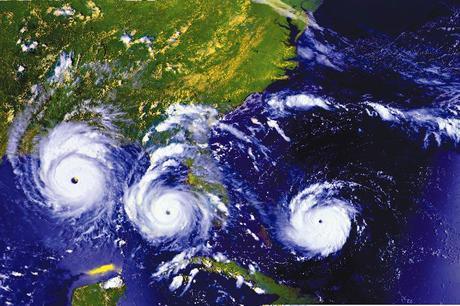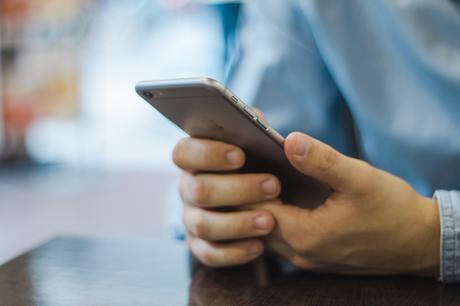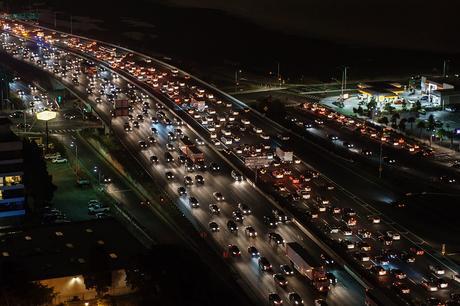Over the past couple of weeks, huge areas of the United States have been decimated by Hurricane Harvey. The world’s attention has now turned to Hurricane Irma as it descends on The US as well, but the situation is far from being over. There are currently three hurricanes floating around in the Atlantic basin, some are set to hit Antigua and Barbuda as well as the United States, leaving untold amounts of devastation in their wake. Natural disasters like this are becoming all the more common as we see the effects of global warming start to show themselves in a very real way. These hurricanes aren’t the only example of the rise in natural disasters that we’re seeing. Citizens all across central America are being warned after an earthquake off the coast of Mexico caused a tsunami, killing fifteen people.

In the coming years, it’s likely that we’ll start to see more and more of these kinds of natural disasters, and we need to be prepared to deal with them and recover in the aftermath. In the next couple of months, the victims of this recent spate of hurricanes will have to set about rebuilding their lives. They have a long road ahead of them but if you know how to deal with these situations, you can come back from them. If you’re worried that you may fall victim to a natural disaster in the future, here are the steps that you need to take to deal with it.
Don’t Panic
When you get warning that a hurricane is headed your way, the natural reaction is going to be panic. You’ve likely seen news footage of people panic buying supplies in the lead up and while it’s important to be prepared, panicking will only cloud your judgment and cause you to make rash decisions that won’t help in the long run. Make sure that you keep yourself updated by watching the news and keep a radio on at all times so you know exactly what you’re dealing with and try to stay calm. That way, you’ll be able to devise a clear strategy that will help to minimize the damage and keep you and your family safe.
Know Your Geography
A good understanding of the geographical makeup of the area that you live in will help you anticipate just what the effects are going to be. Knowing which natural disasters are most likely to affect you also means you’ll be able to put plans in place ahead of time. Certain areas lie in seismic activity zones that are most prone to earthquakes, while others are low lying areas that are likely to be hit by floods. You need to know if you live in one of these high risk areas before a natural disaster hits, so when it does, you’ll be ready for it. A good knowledge of the layout of the surrounding area will also help you to decide which routes are safe for evacuation and which aren’t.
Emergency Contact Numbers

Informing the necessary authorities of any people that are in danger is key to saving lives. If they are aware in enough time, they’ll be able to rescue people more effectively. In a crisis situation, so many people are going to be panicking and calling 911. That’s not always the best number to call. There are specific organizations that are set up to deal with natural disasters so you need to know ahead of time how to contact them and direct them to best help anybody that is in danger.
As well as the emergency contacts you’ll need during the event, you need to know who to speak to when it comes to repairing the damage afterward. For example, if you’ve been hit by floods, you’ll need somebody to repair the water damage to your house. You can find RestorationEze here and enlist their services to patch up the water damage and make your house livable again. Being hit by flooding is one of the easier disasters to come back from.
If you’ve been hit by an earthquake or a hurricane, the damage to your house may be a lot more severe. If there is serious structural damage to the house, you may need to start again from scratch or even move home completely.
Insurance
During a natural disaster, your home and your belongings are going to suffer huge amounts of damage. Trying to repair, rebuild and replace your life is going to be expensive so you need to sort out proper insurance coverage before it happens. When you take out your policy, you need to check it thoroughly to make sure that it will definitely cover you in the event of a natural disaster. You don’t want to put a claim in only to find out that you aren’t eligible for any money to help you in the aftermath. As soon as you become aware of an impending disaster, you should contact your insurance company immediately. This will allow them enough time to start sorting out all of the necessary paperwork for your claim which means that you’ll minimize the amount of time it takes to get everything sorted once the danger has passed.
Evacuating

Once you’ve made all of the necessary preparations, you need to get out of harm’s way as soon as possible. You should have already mapped out your evacuation routes and planned a strategy way ahead of time. Ensure that everybody knows exactly what they need to do so when the time comes, you can execute your plan to the letter. Agree on a place that you will meet once you’re out safely. Mobile phone networks are likely to go down if masts are affected by the natural disaster and if you’ve got no way of contacting one another and no specified meeting point, you could end up losing people and it’ll be a struggle to get into contact with them again for a long while.
Deciding what to take with you when you evacuate is also important. You need to face the reality that the majority of your possessions are likely to be destroyed. You’ll only have limited room in the car and wasting it on personal items might put you in trouble later on. Of course, there are going to be things that you want to save and that’s fine. But you should choose only a few key items to take with you. A clever tip is to empty your dishwasher and put things inside. It’s waterproof and can withstand a fair amount of shock. The majority of you car space should be filled with essential supplies, you don’t know what’s going to happen along the road and with that many people trying to evacuate, you could be held up for a while. Make sure that you bring enough food and bottled water with you to last at least a few days. Buy canned goods that won’t perish if you can’t refrigerate them.
Bringing a first aid kit with you is also vital. There might be some small bumps and scrapes along the way and you might not be able to get to a doctor very easily so having a few basic first aid supplies with you is important.
Psychological Effects
People always think about the physical damage caused by a natural disaster. All of the lost possessions and the damage to the house. But people often forget about the psychological damage that these events do to you and your family. The initial reaction to a natural disaster is just going to be shock. It can be difficult to believe that this is actually happening to start with. But once the shock subsides and the real gravity of the situation starts to sink in, you might start to experience some more serious psychological problems. Picking up the pieces after a natural disaster is an incredibly daunting task and for some people, it can feel like things will never get back to normal.
It’s common for victims of natural disasters to experience severe anxiety or depression. It’s always a good idea to speak to a professional after a traumatic event like a natural disaster so you can work through some of those difficult feelings.
In more extreme cases, some people may find that they suffer from PTSD. People don’t always associate PTSD with natural disasters but it’s such a traumatic event that you can have some long lasting psychological effects from it. If you are experiencing lots of flashbacks or nightmares about the disaster, that’s a sign that you need to seek the help of a professional to try to deal with the stress.
You’ll also have lost a lot of personal items that held emotional significance. Moving past that will be hard and you may have to go through a grieving process of sorts. The best way to come to terms with the things that you’ve lost is to try to rebuild and create new memories to replace the ones that were lost during the natural disaster.
A natural disaster is a scary and difficult time for everybody involved, but if you plan for it, and remain calm throughout, it is possible to bounce back from.
